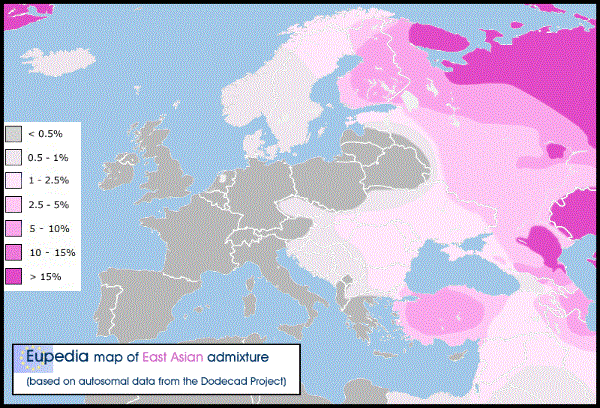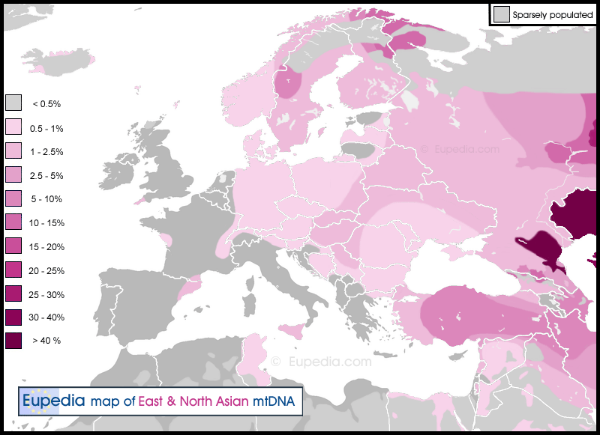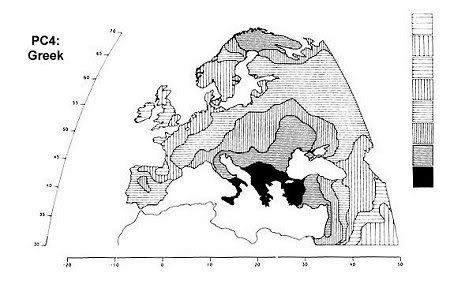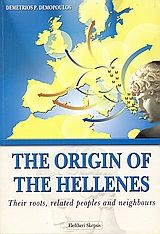Post by Admin on Nov 28, 2022 23:20:45 GMT
F. David Woodward, former Retired Principal at Halton District School Board (1966-1997)
Probably about 25% of English has Greek derivations or roots. At least that’s what they told me when I studied Greek for 3 years in high school.
Many of the scientific words and medical terms derive from the Greek terms for similar ideas, for example. The rest of these study areas come from Latin (about 50%) and other Indi-European languages mostly. As English was becoming so enriched by new discoveries in science, technology, and literature, the language incorporated many words from the 2 classic languages through the writers that evolved the language in the past 600 years. Today, English borrows word from every language it seems and it is just absorbed - many German speakers are absorbing English words today into their vocabulary in a similar fashion. Whereas French has a dictionary that is much smaller and less inviting to this process.
Dimitrios Michmizos, Neuroscientist. Philosopher. Writer.
There are research papers that claim the number to be above 100,000 but I think those writers got creative with their etymology. The consensus seems to be around 40,000–50,000.
In certain life sciences, from Anatomy and Biology all the way to Medicine and Zoology, a Greek speaker has a breeze in getting to learn the onomatology as it even retains the original spelling (consider: αιματοποίηση vs. hematopoiesis).
This is a speech delivered by at the closing session of the International Bank for Reconstruction and Development, on October 2, 1959 by Prof. Xenophon Zolotas, then Governor of the Bank of Greece. He wrote it by employing only Greek words used in English today. Even if it does sound quite verbose, try and see how much of it is indeed readily accessible to English speakers:
“Kyrie,
I eulogize the archons of the Panethnic Numismatic Thesaurus and the Ecumenical Trapeza for the orthodoxy of their axioms, methods and policies, although there is an episode of cacophony of the Trapeza with Hellas.
With enthusiasm we dialogue and synagonize at the synods of our didymous Organizations in which polymorphous economic ideas and dogmas are analyzed and synthesized.
Our critical problems such as the numismatic plethora generate some agony and melancholy. This phenomenon is characteristic of our epoch. But, to my thesis, we have the dynamism to program therapeutic practices as a prophylaxis from chaos and catastrophe.
In parallel, a panethnic unhypocritical economic synergy and harmonization in a democratic climate is basic.
I apologize for my eccentric monologue. I emphasize my eucharistia to you Kyrie, to the eugenic and generous American Ethnos and to the organizers and protagonists of this Amphictyony and the gastronomic symposia.''
Mr Xenophon Zolotas
www.quora.com/How-many-Greek-loanwords-are-there-in-English-language
So, did you know you can speak Greek?
I bumped into the picture below a while ago and I thought this should be interesting. Undoubtedly, Greek is one of the richest languages in the world and is distinguished by an extensive vocabulary. In the past, the Guinness Book of Records ranked the Greek language as the richest in the world with 5 million words and 70 million word types!
You speak Greek, You just don't know it
The front cover of You speak Greek, You just don't know it, a book by Annie Stefanides (Ianos, 2010)
Well, many of these words have been widely borrowed into other languages, including English. Greek roots are often used to coin new words for other languages, especially in the sciences and medicine. Mathematics, physics, astronomy, democracy, philosophy, athletics, theatre, rhetoric, baptism and hundreds of other words are Greek. Moreover, Greek words and word elements continue to be productive as a basis for coinages: anthropology, photography, telephony, isomer, biomechanics, cinematography, etc. and form, with Latin words, the foundation of international scientific and technical vocabulary, e.g. all words ending with –logy (“discourse”). Interestingly, an estimated 12% of the English vocabulary has Greek origin. Greek has contributed to English in several ways, including direct borrowings from Greek and indirectly through other languages (mainly Latin or French).
In a typical 80,000-word English dictionary, about 5% of the words are directly borrowed from Greek; this is about equivalent to the vocabulary of an educated speaker of English (for example, “phenomenon” is a Greek word and even obeys Greek grammar rules as the plural is “phenomena”). However, around 25% are borrowed indirectly. This is because there were many Greek words borrowed in Latin originally, which then filtered down into English because English borrowed so many words from Latin (for example, “elaiwa” in Greek evolved into the Latin “oliva”, which in turn became “olive” in English).
Greek and Latin are the predominant sources of the international scientific vocabulary. Greek is often used in coining very specialized technical or scientific words, however, so the percentage of words borrowed from Greek rises much higher when considering highly scientific vocabulary (for example, “oxytetracycline” is a medical term that has several Greek roots).
In education, an excellent way to build vocabulary is teaching students how to find roots in words. Since many words have their base in the Greek language, beginning with the roots from this ancient language is a good place to start. This list of English words with Greek origin will give students a basis for further exploration into the roots of the English language.
eurotalk.com/blog/2013/02/08/so-did-you-know-you-can-speak-greek/
English words of Greek origin
en.wikipedia.org/wiki/English_words_of_Greek_origin





























































